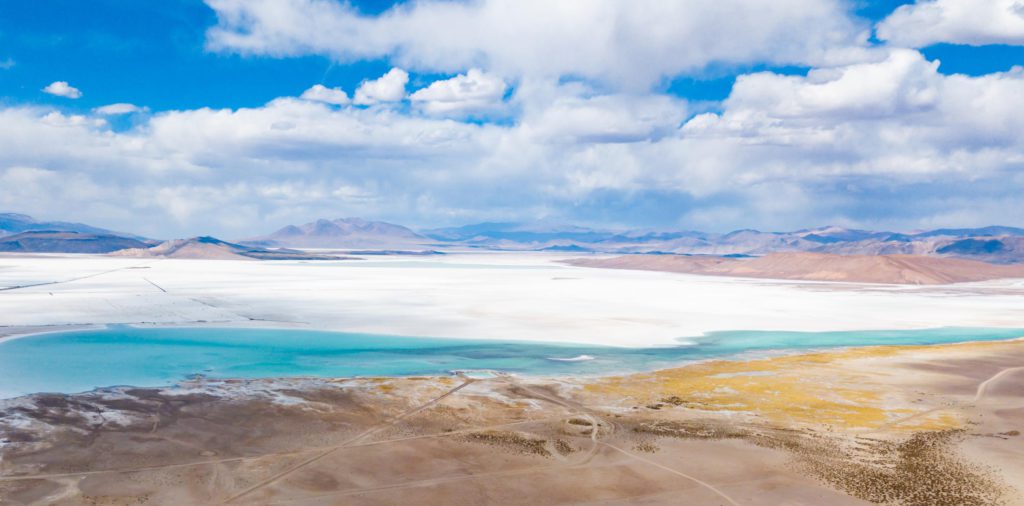BMW expands lithium supply through sustainable methods
09 April 2021

As the push towards increased electrification continues, the automotive industry needs to be mindful of the environmental impact. While electrically-chargeable vehicles (EVs) are better for tailpipe emissions, the sourcing of materials, especially for batteries, could cause other problems.
BMW recently announced a partnership with US-based company Livent for a second supply of lithium. The carmaker is accelerating its e-mobility plans and aims for 50% of sales by 2030 to be battery-electric vehicles (BEVs).
This will increase the need for lithium, a key component of EV batteries. Livent will become the German group’s second supplier of the material with deliveries direct to BMW battery manufacturing plants from 2022. The value of the multi-year contract will total around €285 million.
′Lithium is one of the key raw materials for electromobility. By sourcing lithium from a second supplier, we are securing requirements for the production of our current fifth generation of battery cells. At the same time, we are making ourselves technologically, geographically and geopolitically less dependent on individual suppliers,’ said Andreas Wendt, member of the board of management of BMW AG responsible for purchasing and supplier network.
Sustainability goals
BMW sources its raw materials such as lithium and cobalt directly from producers and sends them on to its manufacturing partners. This way, the company can create complete transparency over the origin and mining methods of the material. Livent supplies its lithium from Argentina. It obtains the material from brine in salt lakes, using an innovative method that emphasises sustainable water while minimising the impact on local ecosystems.
The salt lakes in the border region between Argentina, Bolivia and Chile are home to roughly half the world’s lithium reserves. In conventional lithium mining, brine from the layers below the salt lakes is pumped out of the ground and evaporated in shallow basins.
However, Livent obtains lithium from a brine resource in northern Argentina, using a proprietary method that is particularly sustainable. To minimise the impact on the surrounding ecosystem, most of the brine used is returned directly to the surrounding habitat and not evaporated. This largely preserves the balance between the brine layers and groundwater layers. Solvents and other chemicals do not meet the environment during this process. It also takes up much less space since evaporation basins are barely used. The company is also involved in local educational programmes and infrastructure measures.
Leading ethical solutions
Early last year, BMW became the first automotive manufacturer in the world to join the Initiative for Responsible Mining Assurance (IRMA). This is a multi-stakeholder governed initiative that has developed guidelines for responsible extraction of raw materials and defined strict requirements for meeting its environmental and social standards.
The carmaker has set itself the goal of having mining suppliers certified according to this standard in the future. On BMW’s recommendation, Livent has become a pending member of IRMA, signifying its commitment to undergo a third-party audit of its operations.
Study in brine
Late last year. the BMW Group, together with BASF, commissioned a scientific analysis of how different lithium mining methods use water in South America. Working with the University of Alaska Anchorage and the University of Massachusetts Amherst, the study will investigate mining’s impact on local water resources and the surrounding ecosystem.
The aim is to improve the scientific understanding of the relationship between fresh water and lithium brine aquifers, evaluate different technologies, and provide the foundation for assessing sustainable lithium mining. Results should be available in the first quarter of 2022.
Focus on manufacturing
BMW has also agreed to a deal with Chinese company CATL to establish a battery gigafactory in Germany. The carmaker has also signed a supply deal with Northvolt and will likely offer its new source of lithium directly to these businesses.
As carmakers increase the number of electrified models they offer, there will need to be an increased effort to bring battery manufacturing to the continent. While several projects are in the planning stage or factories are under construction, more will be needed. Volkswagen (VW) Group recently announced it would create six gigafactories in Europe to meet its EV ambitions’ needs.
By setting up manufacturing centres closer to vehicle production lines, supply chains will shorten, while batteries move between facilities more sustainably. Currently, many lithium-ion units are shipped from Asia, increasing the EV’s carbon footprint as a result.